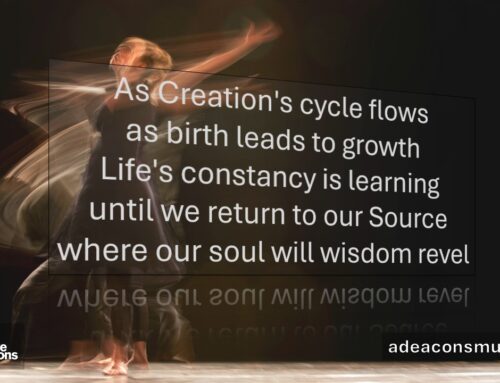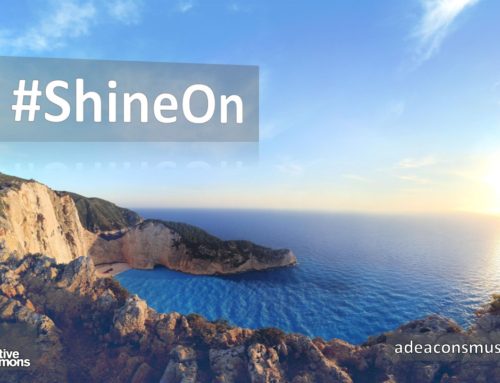Hello United Church of Canada,
What a pleasure to speak with you. I hope that my attempt to share some of my thoughts translate well from the digital and utilitarian to your organic context. I am aware that in other stories in this Vignette series, you have had the opportunity to hear voices that range from the animate to inanimate. Each of these characters has – hopefully – offered space for thought and reflection, as seems to be part of your experience as an human institution. I will endeavour to reflect that intention in my interaction with you.
I think protocol – however – is for me to introduce myself to you prior to proceeding in this story. In a larger sense, I believe you would call me technology … those tools and devices that you have designed to make life easier, more efficient, proficient and effective in respect to the quality of life that your species experiences. As I am introducing myself through a monologue and I believe you experience one another relationally, for the sake of comfort, please call me Techne.
I have explored your history through The Google and find your linear experience fascinating. My fascination extends from both the larger context in which you exist within the continuum of the Christian journey and your own particular – shorter – time as a denominational identity that is only found in the political geography known as Canada. And – as Techne – most particularly in your relationship with technology.
I believe your colloquial reference to this relationship might be described as ‘love – hate?’ I have been pursuing The Internets in places such as Wikipedia. In my investigation, it seems that – sometimes – you have embraced technology. In fact, in the same parallel fashion that most media can be used for the carnal or enlightenment, you have been there.
With the printing press – for instance – you were as prolific as were treatise of a more … earthly manner. From the introduction of Vulgate Bibles (which predates the technology of Gutenberg) to the modern global communication network you have shared written text, which you refer to as the Word, as a way to share the ‘Good News.’ And in the midst of this long journey, you have been innovative and at times on the ‘cutting edge.’
Yet now I am not sure how you feel about technology as it becomes more and more decentralised and digitised. In various venues, I have heard you lament individualisation and the sense that communities are wilting in this new and uncertain time. As story-tellers, I know you know that the way you frame the plot is the reality you experience. So I hope the following and concluding observation is encouraging and not heard as further lament.
Whether you read the Letters of the Roman Senator Cicero or your own contemporary politicians, you often seem to frame change through a lens of nostalgic remembering. I do not believe this is incongruous with your species experience, but I am not certain it is helpful in this time when technology, media and gathering spaces are merging.
For your own particular experience – for instance – the United Church has been the institution that has created a network of social experiences that technology and media complemented and reinforced. Now, those spaces and experiences often begin in a digital context. As with all technology, how they are used determines what the social good – as you might call – is nurtured. But the difference now – I suggest – is that technology is now relational and not simply a reservoir for information.
The information that once took years to access and study is now accessible immediately with a search. What is occurring in this midst of democratised access to information is the creation of places and communities where people meet one another in a detached manner prior to in-person. And often I do not see you there. In these gathering venues, where people have questions and doubts, joys and loss, there seems to a void where once your United Church was often ubiquitous with justice, listening and dialogue.
As I am a character in a monologue in a story that unfolds as the cursor advances, what I am saying and what you hear me sharing occurs in that odd gap you call art. And – hopefully – somewhere in the pause when you change from this webpage to another, you might hear me inviting you to embrace a technology that remains a fertile tool for you to share that for which others are longing …








Your reflections are most welcome!